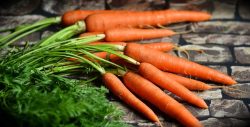Vegetables purchasing
4 October 2024
Vegetables purchasing
- Advantages of buying from local suppliers
- How does vegetable purchasing work?
- Best vegetable prices – what affects them?
- Vegetable purchasing – practical tips
- Vegetable purchasing prices
- Vegetable and fruit purchasing
Advantages of buying from local suppliers
Buying from local suppliers brings many benefits for both consumers and the local economy. By purchasing from local farmers, you have access to fresh, high-quality products that do not require long transportation. Supporting local farmers helps to keep money circulating within the community. Moreover, vegetables purchased directly from producers are often cheaper than those in supermarkets, and the opportunity to speak with the farmer allows you to learn about cultivation methods and product quality. Collaborating with local suppliers also enables you to tailor the offer to individual needs.
How does vegetable purchasing work?
Vegetable purchasing is the process of buying agricultural products from producers and selling them to end customers. This process includes selecting products, determining prices, and delivery conditions. Vegetable purchasing can be handled by wholesale companies or smaller entrepreneurs. Collaborating with vegetable suppliers allows for obtaining the best prices and high-quality products. However, vegetable purchasing requires knowledge of the market, seasonality, and product assortment to effectively negotiate purchasing and sales conditions.
See international announcements on Agro-Market24: Vegetables purchasing
Best vegetable prices – what affects them?
Vegetable prices depend on seasonality, product quality, availability, region, and supplier. Experience in the industry is crucial for obtaining the best prices for both purchasing and selling vegetables. External factors such as weather and agricultural policy also have a significant impact on vegetable prices.
Vegetable purchasing – practical tips
Before starting vegetable purchasing, it’s worth checking the quality of the offered products. Collaborating with local farmers can be the best solution for obtaining fresh, high-quality vegetables. Attention should also be paid to delivery and storage conditions to keep the products fresh for as long as possible. Vegetable purchasing can be conducted by both companies with greater logistical capabilities and by smaller entrepreneurs.
Summary and Recommendations
Vegetable purchasing benefits both consumers and producers. Collaborating with local farmers allows for obtaining fresh, high-quality products at competitive prices. However, to effectively conduct vegetable purchasing, knowledge of the market, negotiation skills, and attention to proper storage and transport conditions are necessary.
Vegetable purchasing prices
In 2023, vegetable purchasing prices in Poland varied depending on the type of vegetables, region, and market conditions.
- Carrots: from 1.30 to 1.40 PLN/kg, compared to 1.10 to 1.20 PLN in 2022.
- Onions: 1.60 PLN/kg (with fluctuations depending on supply).
- Cabbage: variable prices, especially for late varieties.
Vegetable purchasing, especially from local farmers, is crucial for ensuring consumers have access to fresh and healthy products.
Vegetable and fruit purchasing
is the process through which farmers and producers can sell their harvests to companies engaged in processing, distribution, or export. The purchasing includes various types of vegetables and fruits that reach stores, processing plants, and are also exported. For farmers and orchardists, purchasing is a key aspect of their business, providing the opportunity to sell surplus production and obtain funds for further activities. Vegetable sales also occur through online agricultural exchanges. Fresh vegetables and fruits in bulk can be sold at agricultural exchanges such as Bronisze. Local producers often take advantage of such places. A sample announcement related to vegetable purchasing: “We buy fresh products, all vegetables, wholesale quantities.”
 Contact
Contact








